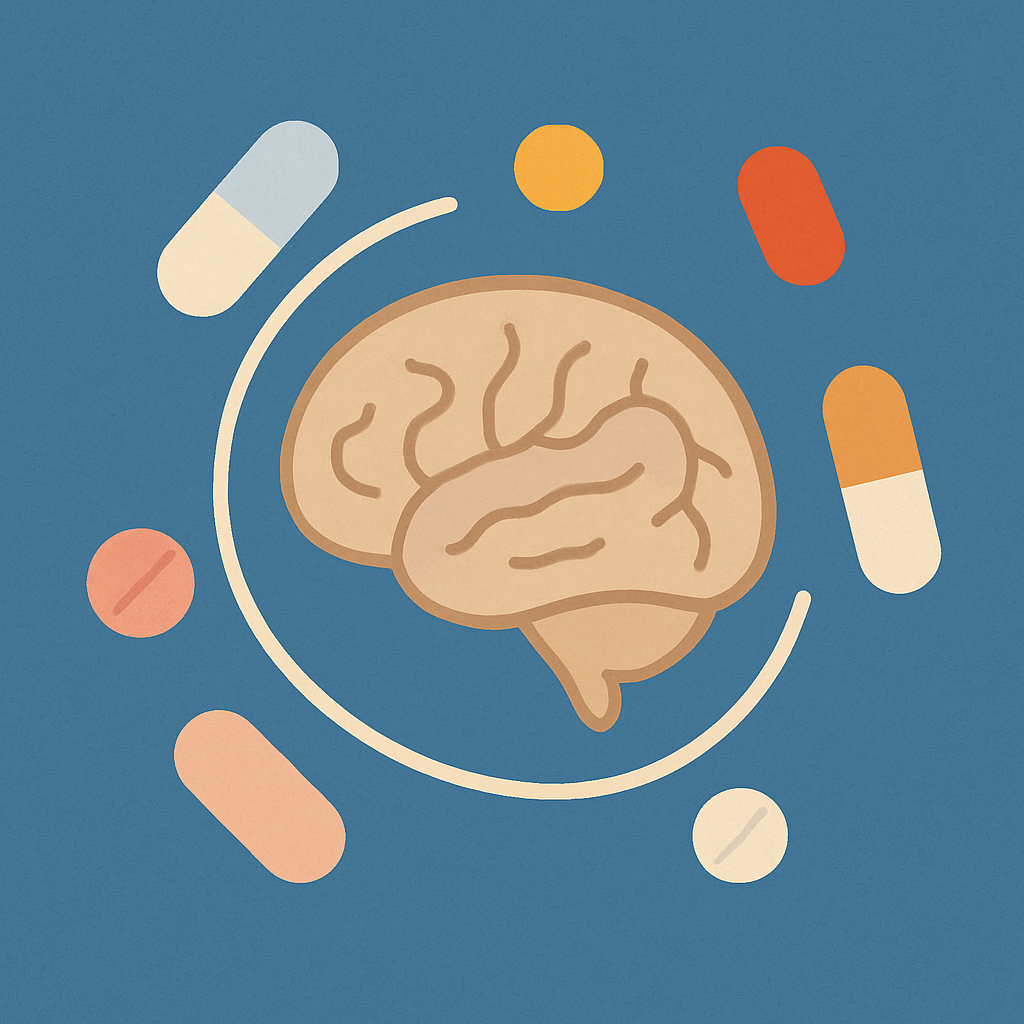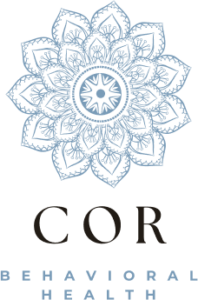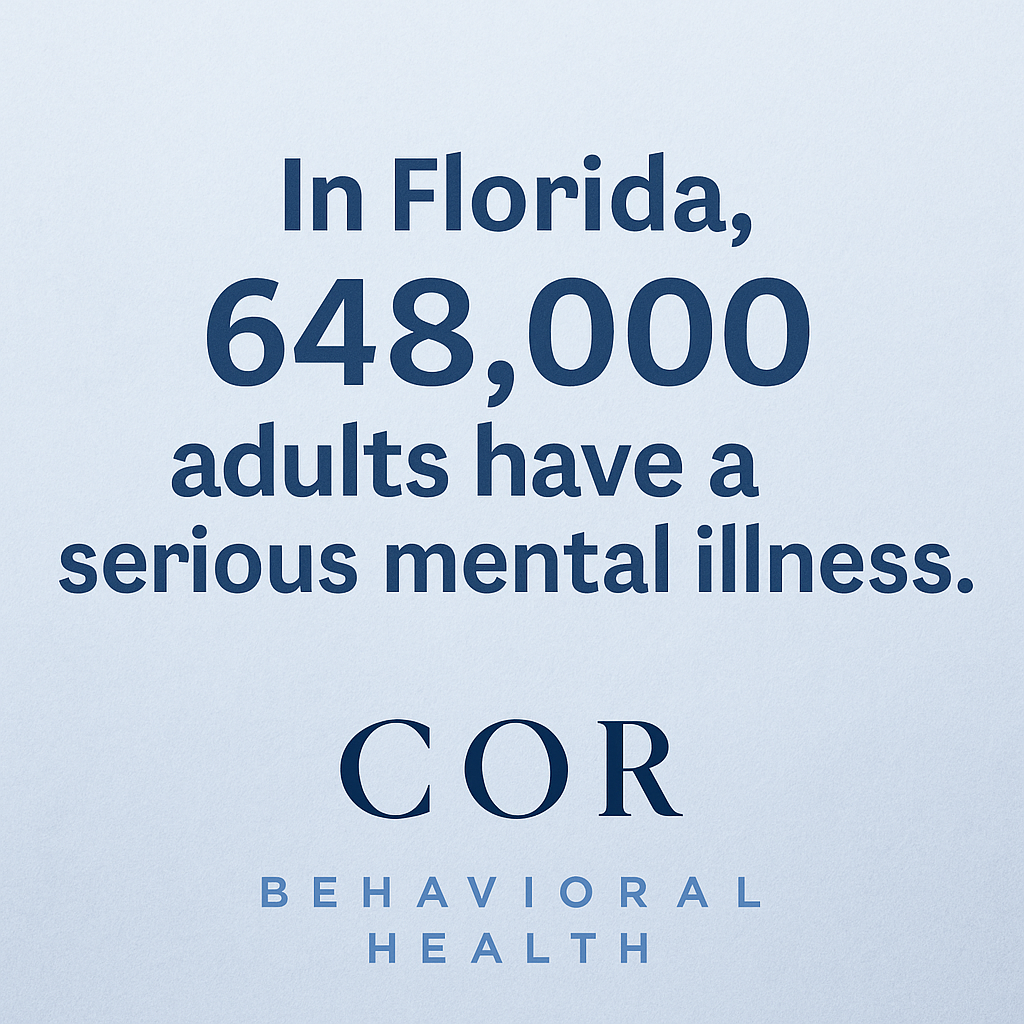
So, You Got a Diagnosis. Now What?
Maybe someone said the word depression or bipolar or anxiety disorder. Maybe it’s the first time anyone’s put a name to the chaos inside your head.
Maybe you’re terrified. Of meds. Of labels. Of the part of you that wonders, What if they’re right? What if I really am broken?
You’re not broken. You’re waking up to something hard—and psychiatric care isn’t a punishment. It’s a pathway.
And at COR Behavioral Health in Hobe Sound, we help people just like you figure out what comes next.
Diagnosis Isn’t the End of the Story
Getting diagnosed can feel like a verdict—but it’s actually a flashlight.
It helps you name things you’ve been fighting in the dark. It gives context to the patterns, the exhaustion, the mood swings or blank spaces.
It doesn’t define you. It describes a part of your experience—so you can finally get real help.
You’re Allowed to Be Scared of Medication
Medication hesitation is normal. You’re not weak, irrational, or “anti-help” because you’re nervous.
Will it change me? Will it numb me? Will it make me dependent?
These are questions we take seriously at COR. Psychiatric care doesn’t start with a pill—it starts with a conversation. We walk through options, side effects, and what “help” actually means for you. No pressure. No rushing.
Psychiatric Care Is More Than Prescriptions
Yes, medication can be part of psychiatric care—but it’s not the whole picture.
At COR, psychiatric care may include:
- Diagnostic clarity and assessment
- Talk therapy and behavioral support
- Medication evaluation, only if needed
- Collaborative care planning that honors your pace
We treat the person, not the label. That includes your fear, your identity, your questions—and your right to say not yet.
Common Conditions, Common Medications—In Plain Language
If you’re new to psychiatric care, the names can sound intimidating. You don’t have to memorize them—but it helps to get familiar with a few basics.
Here are some of the most common mental health conditions we treat—and the types of medications that are often used to support them:
- Depression
You might hear: Lexapro, Zoloft, Wellbutrin
These medications can help rebalance the chemicals in your brain that affect mood, energy, and focus. Some are calming; some give you a little lift. The goal isn’t to fake happiness—it’s to clear the fog so you can feel again. - Anxiety
You might hear: Celexa, Buspar, Ativan (short-term)
Anxiety meds range from daily stabilizers to short-term relief tools. They’re designed to help calm the constant hum of worry—not to shut down your personality. - Bipolar Disorder
You might hear: Lamictal, Lithium, Abilify
These medications can help manage the highs (mania) and lows (depression) that come with bipolar disorder. Think of them as tools that help you find a steadier rhythm—not flatten your emotions. - ADHD
You might hear: Adderall, Vyvanse, Strattera
ADHD meds usually support focus, impulse control, and follow-through. Some are stimulants, others are not—and we always talk about what fits your body, your lifestyle, and your comfort level. - PTSD & Trauma-Related Struggles
You might hear: Prazosin (for nightmares), Zoloft, Effexor
Medications for trauma often aim to reduce hyperarousal, improve sleep, and soften the emotional spikes that make daily life hard. They’re not about forgetting—they’re about feeling safe again. - Schizophrenia or Psychotic Disorders
You might hear: Risperdal, Seroquel, Clozapine
These medications may help reduce or manage symptoms like hallucinations, delusions, or disorganized thoughts. They’re part of a larger care plan that includes safety, stability, and support—not just symptom control.
These aren’t one-size-fits-all solutions. They’re starting points—options you can explore, question, and accept or decline. We’ll help you understand the “why” behind every suggestion.
You Can Be Skeptical and Still Deserve Help
You don’t have to be 100% sold to take the first step.
You can doubt the system, hate the word “patient,” and still ask for a consult.
You can say, “I’m scared,” and we’ll say, “That makes sense.”
This isn’t about compliance. It’s about finding what works for you, on your terms.
What if Psychiatric Care Actually Felt Like Relief?
What if the thing you fear could become the thing that steadies you?
We’ve seen it happen. People who swore they’d “never take anything”—now sleeping through the night. People who feared they’d lose themselves—finally feeling like themselves for the first time in years.
Psychiatric care can be that gentle kind of relief. The kind that doesn’t erase who you are—it helps you meet them.
You Don’t Have to Be Ready. You Just Have to Be Honest.
We don’t expect you to have it all figured out.
You don’t have to want medication, or know what to ask, or feel brave.
You just have to say, I don’t want to keep doing this alone.
That’s enough.
📞 Call (888) 231-7973 or visit our psychiatric care services in Hobe Sound, Florida to learn more. No pressure. Just clarity, care, and someone who’s ready when you are.





